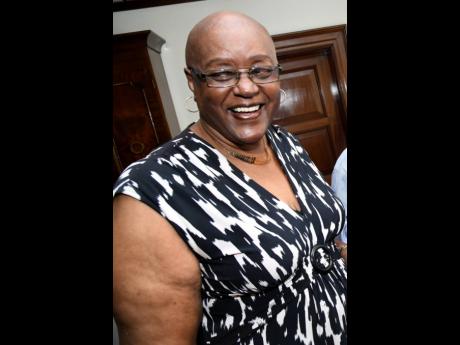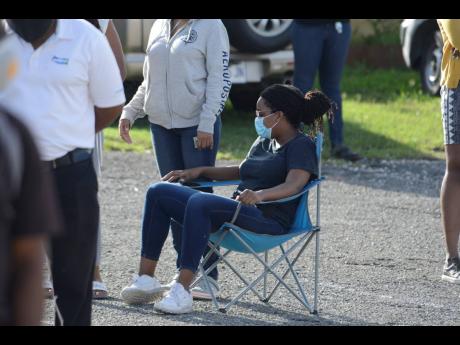Audrey Hinchcliffe | COVID-19 and issues of compliance, conflict and contradictions
There is a saying that “we cannot have it both ways.” But the coronavirus dictates that where edicts and interpretation of the law collide, we may be able to have it both ways.
It is ironic that (though) everything seems to have an expiration date, except dirt and laws, some have renewal dates; even dirt at times gets renewed by Mother Nature after exhaustion by farming and mining. But laws, aged and irrelevant as they may be, as new situations emerge, remain the medium to proverbially ‘throw the book at us.’ Such is the case of the applicability of aged laws in the age of the coronavirus pandemic. No wonder it is said ‘the law is an ass,’ which means ‘the legal system or a particular law is wrong, or not good enough, and should be changed.’ Some are unnecessary or ridiculous. The phrase comes from Charles Dickens’ novel Oliver Twist. This he remarked way back in the year 1834 and is applicable to today’s public health and labour laws. This Dickens reference to the law is relevant today, and I invoke Dickens here again as he was also known as a man of science and a public health activist with a strong eye for general medicine. Little did I know that in high school – way back when – as I suffered through reading Dickens for literature studies, that today I have to ‘hug him up’; for the more things change, the more they remain the same.
The health issues cited by Dickens are still with us today. The idiom, the law is an ass, is relevant today as it relates to health and labour laws. The coronavirus has exposed the conflict with both, and they need attention. The exposure of the conflict is evident in the face of an election in the heights of the coronavirus exploding in Jamaica. The glaring problem was the case of election day workers and their workplace COVID-19 protocols. Issues of compliance, conflict and contradictions brought out the reference to laws of yesteryear to address the situation. Employers, as usual, are left holding the bag as we seemingly have no rights. The pronouncements by ‘policy executioners’ made it sound like employers are from the evil empire attempting to ‘infect’ the democratic process, by some not wanting to honour the law to allow time-off for voting and as election day workers – with direct exposure in a space where the virus can spread, and not wanting to be quarantined for 14 days before returning to work.
GOOD SENSE SHOULD PREVAIL
I am of the firm belief that in these scenarios, good sense should prevail, with consideration for the greater good – the remaining workforce. Instead, reference to antiquated laws in the face of the novel coronavirus is cause for pause. Instead, the unhelpful threats to employers, based on the dated law in this case, confirms Dickens’s words that ‘the law is an ass.’
No one, employer or employee, should get in the way of the execution of the democratic process – to vote and to work on election day. By all means, enabling laws must be observed. Employees must be afforded time – three hours – to go and cast their votes, following the guidelines specific for working hours, including shift work. In the avoidance of confusion, many businesses closed early – 1 p.m. to 2 p.m. – whether workers were going to vote or not; businesses took the hit. So did MMS Limited.
The matter of election day workers – volunteers – forms part of the compliance with the democratic process. This, too, must be adhered to. The voices representing the powers that be went on a broad-brush campaign against employers who dared to exercise their rights to protect their remaining workforce from the possibility of co-workers becoming spreaders. We can recall the spread of COVID-19 at a workplace in St Catherine? This should be a reminder of what havoc one worker can cause to the entire business, hence a word to the wise. It may be proven that some employers may or may not have been familiar with the legal requirements for workers’ rights on election day, and hence placing restrictions on workers in this regard. Where this existed, legal advice should have been sought, and so MMS Limited did this and followed the advice of the attorney, in particular, treating with those who volunteered as election day workers. Compliance with paying these volunteers for the day off does not stop there. The conflict is their return to work after spending many hours among ‘gatherings’ at polling stations. This gathering, or even the pass-through of electors, is the same situation being raised in the quest to address the spread of a virus – that is, the exposure to infected persons.
The expediency for election gives the stamp of approval for gatherings, with no regard for the spread of coronavirus. It is against this backdrop that as an employer, I declare that this conflicting stance goes against the grain of what is required for compliance with policy edicts. What, then, is the difference of gatherings for electioneering and voting and that of gatherings for protests, parties and people gathering at financial institutions and other business places. Yes, there were edicts, but who dared to enforce compliance.
QUARANTINE ACROSS THE BOARD
I therefore posit that persons who wilfully expose themselves to contracting the virus and coming down with COVID-19 must be the subject of the policy edict – based on whichever legal construct – to be quarantined and isolated. Why should the election day worker be the exception? It is in this context that I dare say employers should comply with policy edicts and require such a worker to be placed under a 14-day quarantine. The greater good must prevail, which is to protect both the election day worker and the remaining workforce.
The question now arises: who is responsible for paying the workers while in quarantine? Some employers have taken the position that it should be the responsibility of the worker or the entity to which they volunteered. The law seems to pin it on the employers. The situation must lead to a conversation for repeal of the antiquated laws which did not anticipate occurrences such as the novel (new) coronavirus pandemic. It is a situation like this one which suggests the approach to updating, repealing or the making of new laws. Dickens aptly said, “The law is an ass.” I say it is time to repeal our antiquated labour and public health laws. In the meantime, I am erring on the side of quarantine for the election day workers with pay for the greater good, that of protecting the remaining workers – at a cost being borne by the company. I will be watching keenly what the rate of COVID-19 will be following on from the period of electioneering and on to election day.
I wonder if I am the only one who is curious about the report provided on the day after election, where the minister of health declared that Jamaica is now experiencing community spread of the coronavirus, meaning it is now rampant and everyone must be treated as if they are infected. This revelation, coupled with the failures of some of the precautions on election day – including reports of inadequate sanitizing supplies or delivered late, or which ran out early – more so makes the case for quarantining of election day workers. We should also be listening and taking advice from scientists and medical experts. The validation of my concerns will be played out and in good time, when COVID-19 further explodes post election. What will the powers that be say then? I guarantee, it will be to enforce edicts such as curfew and workplace protocols.
More anon.
Audrey Hinchcliffe is the CEO and founder of Manpower and Maintenance Services Ltd Group. Send feedback to ceo@manpowerja.com or columns@gleanerjm.com.


